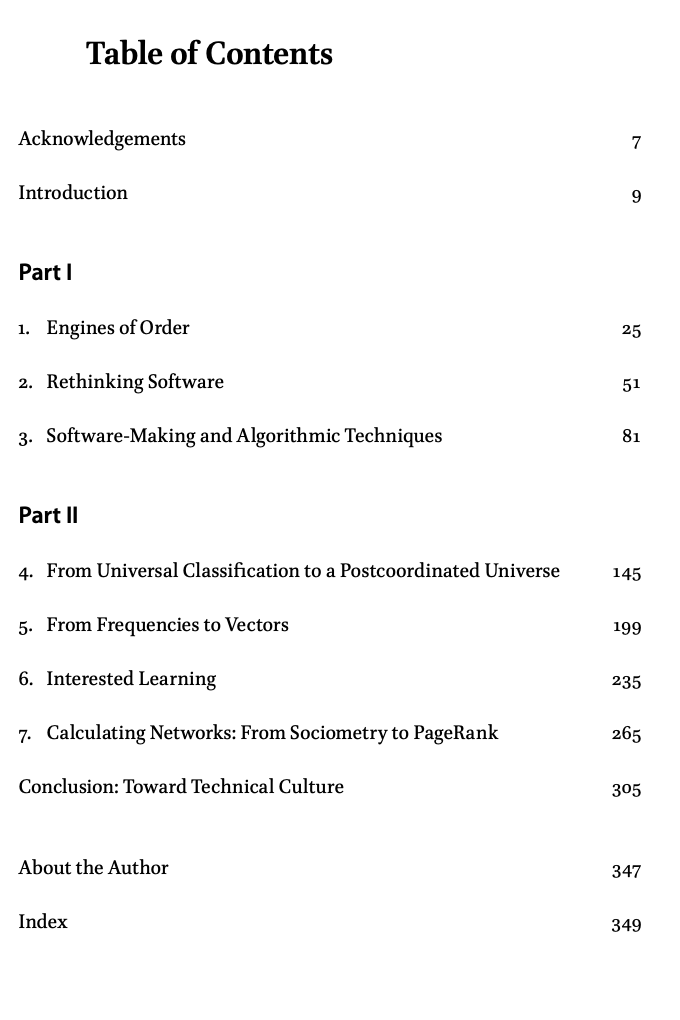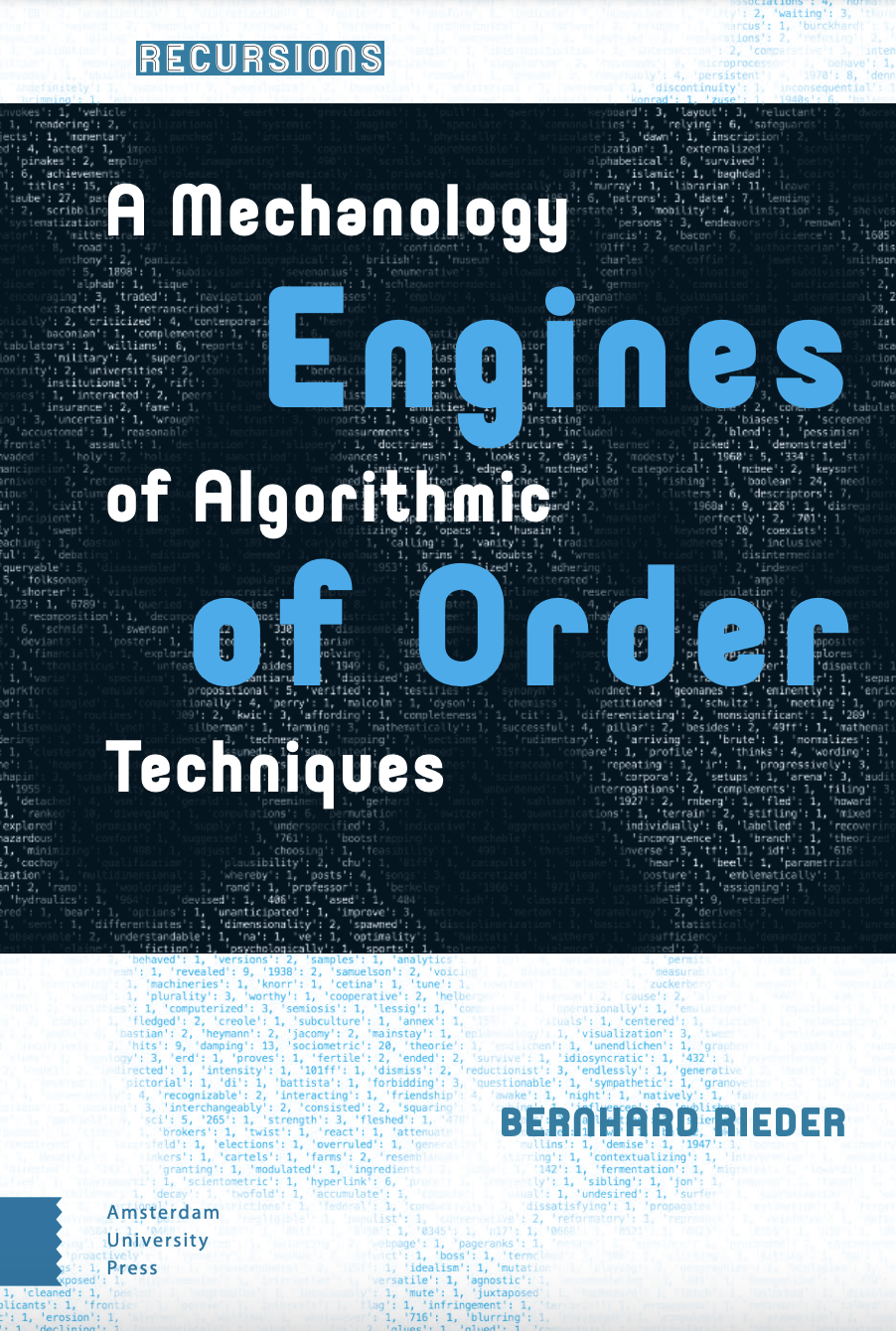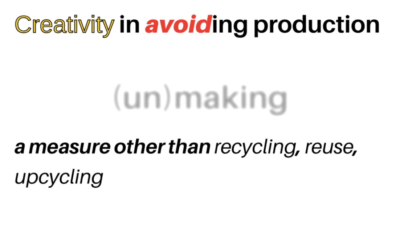A Mechanology of Algorithmic Techniques
Door: Bernhard Rieder
“Taken together, computerization, information overload, and social diversification help us explain how algorithmic information ordering techniques have come to play such prominent roles and call attention to at least some
of the social, political, and economic matters they have become entangled with. But they do not provide a clear picture of the actual technical substance that lurks behind words like ‘processing’, ‘modulating’, or ‘ordering’. The
rest of this book is thus dedicated to the technicities that give functional meaning to these terms, even if the shadow of their eventual application cannot be ignored. This requires an understanding of software, as it defines basic materialities and conditions of production. “
“The dominant cultural interpretations of the technical
and intellectual content of software clearly come in the form of popular science books written by journalists or computer scientists, such as MacCormick’s Nine Algorithms That Changed the Future or Domingos’s The
Master Algorithm. While these texts do an excellent job at relaying technical principles to a lay audience, their cultural analysis is mostly celebratory and based on what amounts to commonsense reasoning about society and culture. Agre’s (1997a) Computation and Human Experience, which describes itself as ‘a critical reconstruction of the fundamental ideas and methods of
artificial intelligence research’ (n.p.), remains a rare example for an attempt to produce a technically competent and theoretically informed appreciation of this particularly evocative part of computing.”

“This book indeed develops a mechanological probe that demarcates and investigates a slice of technicity bounded by computation at the bottom and by the world of social purposes at the top. While hardly independent from
these two boundaries, it constitutes a coherent domain that must neither be absorbed, à la Kittler, into the basic principle of computation, nor too readily into the organizational, political, and economic logics that dominate contemporary applications of computing. Ultimately, I hope to show that the domain of software retains a degree of openness that constitutes an opportunity for the emergence of a ‘technical culture’ (Simondon, 2017, p. 257). As Mercedes Bunz (2014), a keen reader of Simondon, argues, ‘[d]igitalization is happening, and instead of abdicating our responsibility, we must take our part more actively’ (p. 54). A deeper understanding of software and software-making is one of the conditions for living up to this challenge.”
“A study of algorithmic techniques is clearly not enough to capture the broader infrastructural qualities and the normative thrust technical individuals and ensembles exercise when they combine these elements into the specific forms and functions of working systems. A critical reading of PageRank is by no means sufficient for getting a grip on the technical makeup of Google Search and the way it orders the web. An analysis of Facebook’s News Feed filtering mechanism cannot account for the service’s pervasive role as infrastructure for sociability. Since algorithmic information ordering has come to play a pivotal role in these systems, however, it requires special attention and can constitute an entry point into broader forms of analysis that cover grammatization, value creation, and other aspects. The challenge is to connect the objective technical makeup of a system to its objectal embedding, using one ‘side’ to shed light on the other.”





